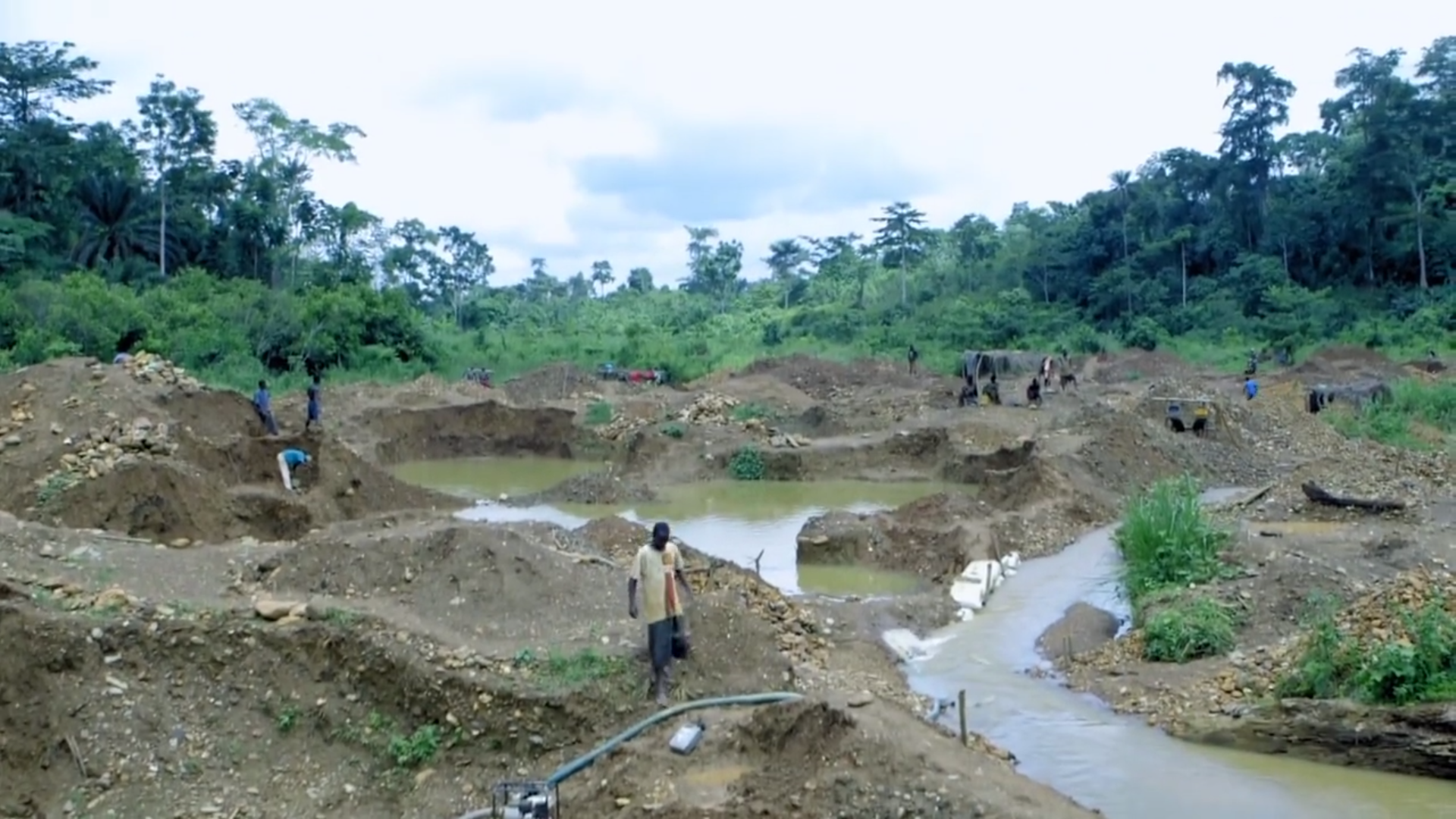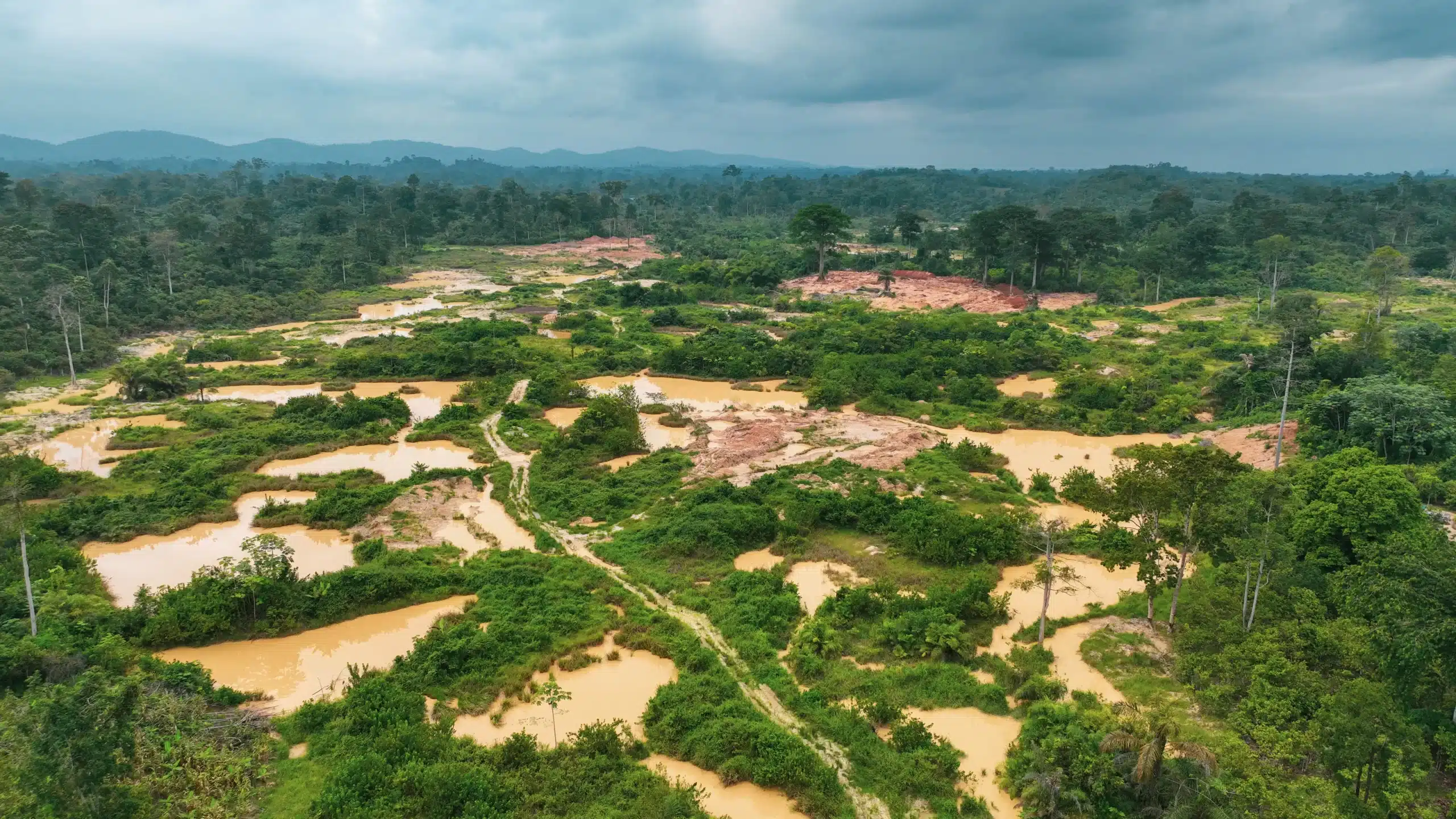Ghana is facing an existential crisis that has been bubbling beneath the surface but is now threatening to explode in the form of a full-blown environmental catastrophe. The illegal mining practice, commonly known as galamsey, has spread like cancer across the country, leaving a wake of destruction that has turned our once fertile lands and clear water bodies into lifeless wastelands. But as the crisis deepens, one must ask: Where exactly does the government stand? Are they the solution, or are they part of the problem?
A Crisis Long Ignored
The damage is undeniable. More than 60% of Ghana’s water bodies are now polluted, with some water turbidity reaching 14,000 NTU, far beyond the capacity of treatment plants. This isn’t just an inconvenience; it’s a death sentence for communities that rely on these water sources for drinking, farming, and everyday life (Africanews). But it’s not just the water. Cocoa farms, the backbone of our economy, have been decimated, forest reserves laid bare, and yet the government’s response can best be described as lethargic at best and complicit at worst.

Despite the dire warnings from environmentalists and civil society groups, the government continues to dilly-dally. A state of emergency in affected areas has been suggested, but not declared. Mining licenses have been questioned, but not revoked. The deployment of security forces has been discussed, but nothing has materialized. It’s as though we are living in a perpetual state of limbo, waiting for the government to find its spine.
Government Involvement: What Are They Really Doing?
The Ghanaian government’s handling of the crisis raises more than a few eyebrows. While it is easy to point fingers at the reckless miners, one cannot ignore the institutional failures that have allowed galamsey to flourish. Corruption within local authorities, ineffective law enforcement, and a suspiciously cozy relationship between some government officials and illegal mining operators all paint a troubling picture.
Let’s not mince words: the government has been part of the problem. The very licenses that are now under scrutiny were once rubber-stamped by government officials. The local police, instead of cracking down on the illegal activities, have often been found turning a blind eye, if not outright protecting the culprits in exchange for kickbacks. When a system becomes so deeply compromised, it is not the miners that are the root cause, but the powers that be who have allowed such impunity to fester.
The Long-Term Consequences: A Grim Future
The consequences of inaction are terrifying. Ghana’s once-thriving agricultural industry is already showing signs of collapse. Cocoa production, which has long been a lifeline for the nation, is declining rapidly as fertile lands are turned into toxic deserts. This spells disaster for the economy, which heavily relies on the export of these goods.
And let’s not forget about the health implications. Polluted water sources mean more than just dirty drinking water—it means the spread of diseases, an overburdened healthcare system, and ultimately, lives lost due to the sheer incompetence of our leadership. What will it take for the government to realize that they are not only poisoning the land but the future of Ghana itself?

If nothing is done—and soon—we are staring down a future where Ghana becomes synonymous with environmental collapse. The short-term profits from galamsey will never outweigh the long-term damage it is inflicting on the country. Thousands of people in mining communities are suffering from the health effects of water and soil contamination, with no clear path to recovery.
Satirical Take: When You’re Poisoning Your Own People, Maybe It’s Time to Stop
It’s almost comical in a tragic way, isn’t it? If this were a war, and we were poisoning the enemy’s water supplies, we would be lauded for our ruthlessness. Yet here we are, in peacetime, poisoning our own water, and what is the government doing? Hosting meetings. Drafting papers. Wringing their hands as though they are powerless to stop this slow-motion disaster. The definition of insanity, they say, is doing the same thing over and over again and expecting different results. Perhaps we should give them the benefit of the doubt—they may simply be insane.

The time for dithering is over. We cannot afford to continue on this path of self-destruction. The government must take a decisive stand—declare the state of emergency, revoke the licenses, and deploy the military if need be. If they do not, Ghana will be left with nothing but memories of what once was: a nation of abundance, now reduced to barren lands and empty promises.
In the end, the solution is simple: the government must act like they care, even if they don’t. Because inaction, at this point, is the real crime.

